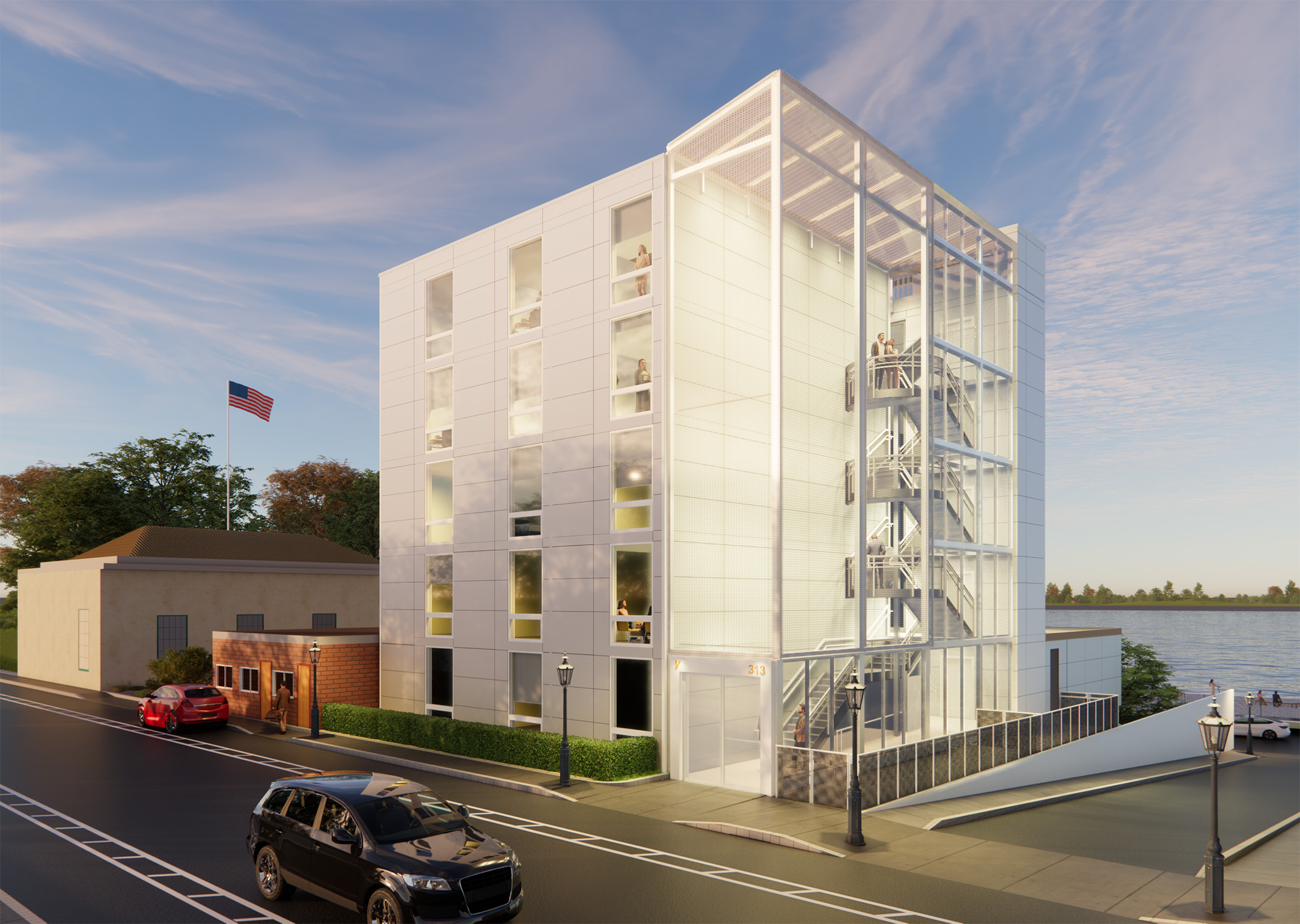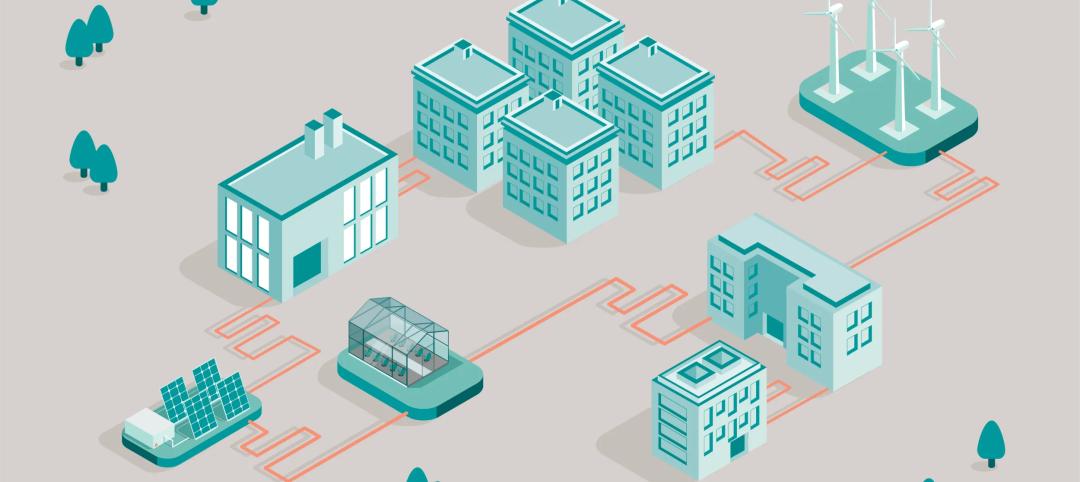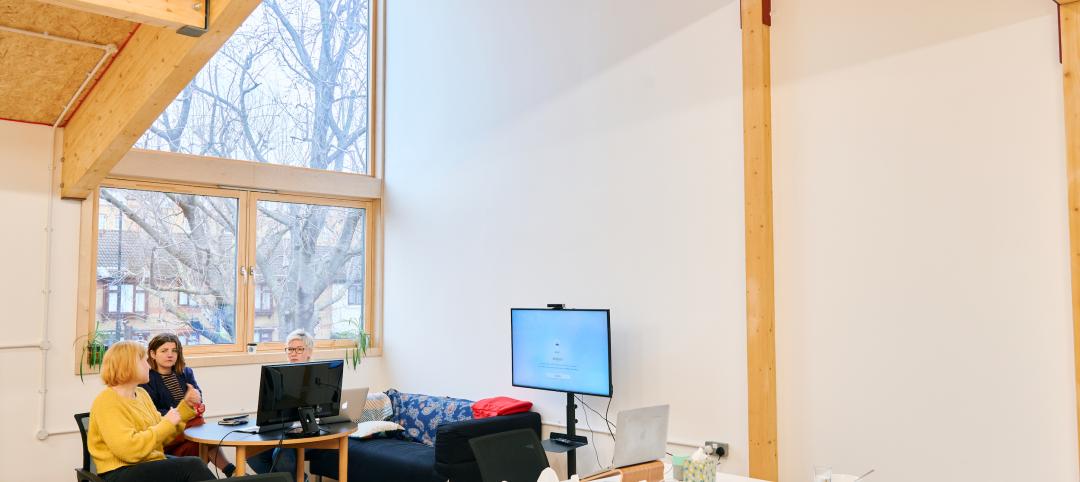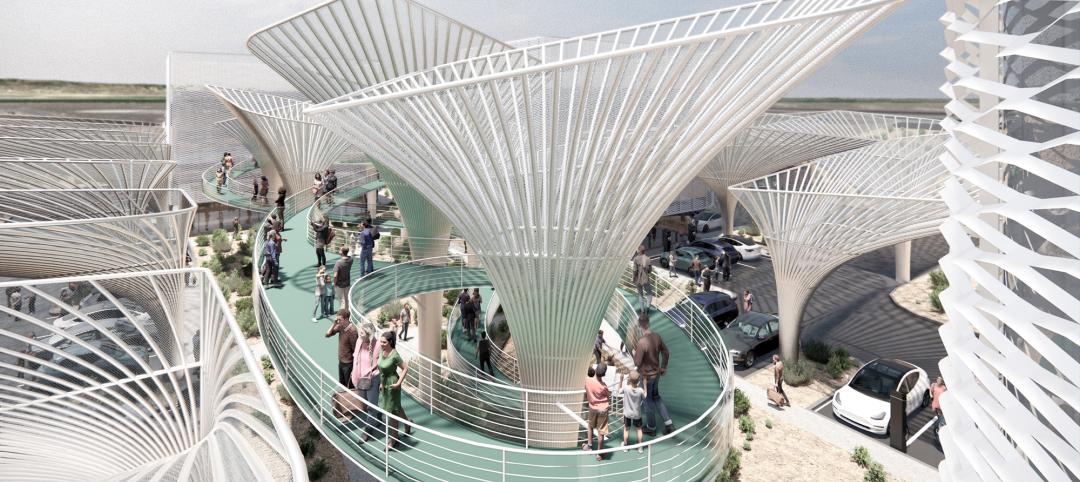Investment firm Mastry Ventures and LENx, the venture arm of homebuilder Lennar, have co-invested in Vessel Technologies’ next-generation housing product. Vessel, a housing product development company, aims to cultivate a pathway to creating attainable housing across the country.
The company’s housing system is focused on “reimagining the apartment building as a consumer product by creating exciting, sustainable, and user-centric housing at attainable prices,” according to Vessel. This is done by prefabricating wall and ceiling components in Vessel’s own manufacturing facility—cutting costs and time compared to traditional construction methods.
Vessel Technologies’ All-Electric Prefab Building System
The Vessel system is 100% electric; solar panels affixed to the rooftop deliver all of the power required for occupants. With the company’s aim for sustainability, Vessel uses no paint and instead utilizes a proprietary recyclable wall panel system. According to Vessel, its facade system is also twice as energy efficient as built-to-code alternatives.
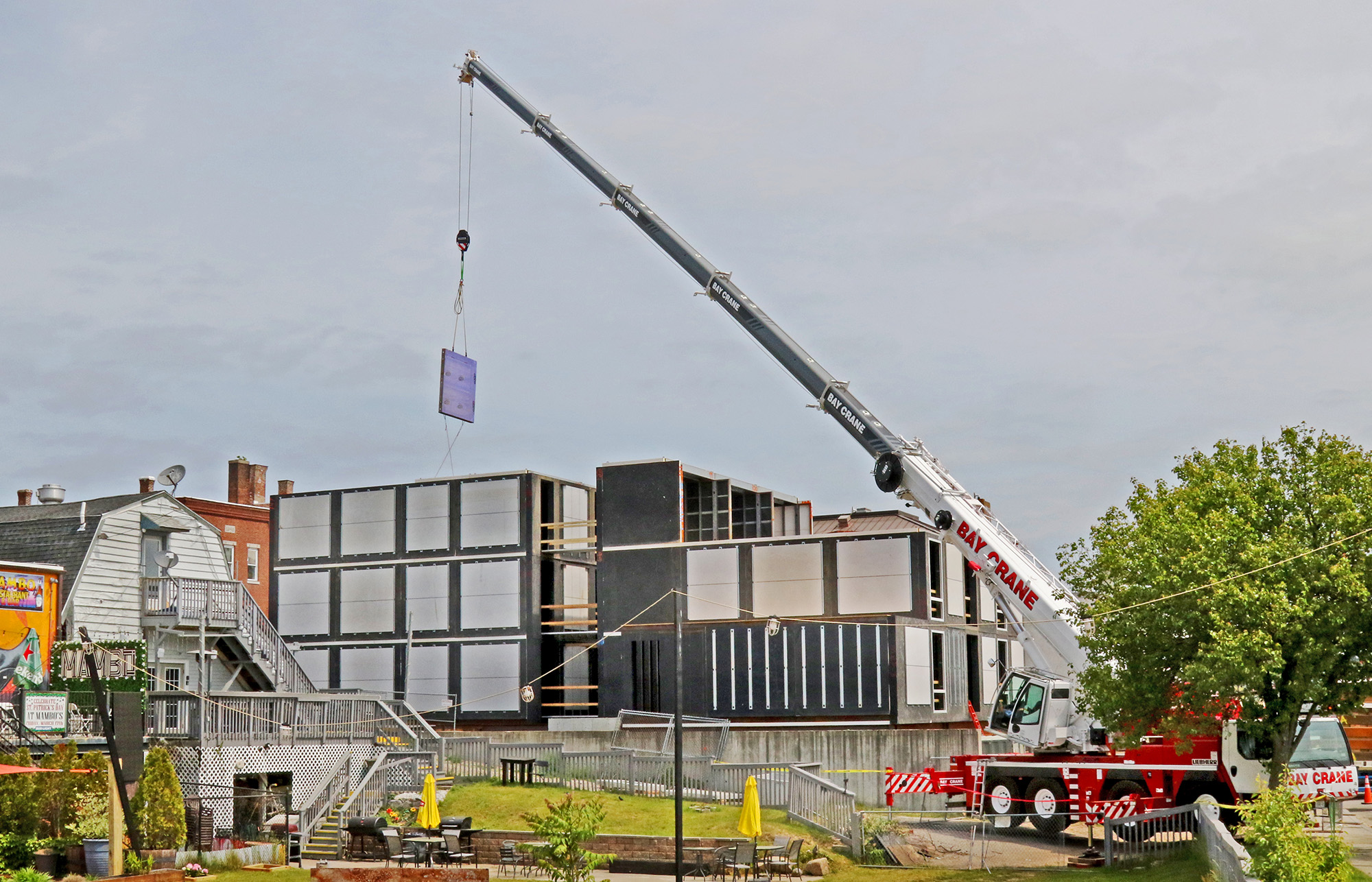
“Vessel represents a whole new category of housing, innovative in every way, to fill a tremendous void: the dearth of truly excellent, deeply desirable and economically accessible rental homes,” said Sam Landman, Co-Founder and Managing Partner of Mastry Ventures.
The investment in Vessel Technologies by Masty and Lennar will allow the product company to accelerate its efforts of providing high-quality buildings, from rental housing to hospitals and universities. Vessel touts its patented system’s seamless design, with operable pieces that smoothly fit together.
Based in New York City, Vessel currently has 12 projects under development throughout the Northeast—all of which are targeted to be net zero. The company’s building materials are sustainable, fire-resistant, and aim to pair well with proprietary smart tech software.
The software—utilizing the company’s own operating system, vOS—acts as a virtual “super” that monitors the building’s hardware, energy demands, and water usage. Additionally, the system includes hundreds of sensors and electro-mechanical devices to manage a unit’s temperature, air quality, security, lighting, and entertainment systems, according to Vessel.
Related Stories
Sustainability | May 11, 2023
Let's build toward a circular economy
Eric Corey Freed, Director of Sustainability, CannonDesign, discusses the values of well-designed, regenerative buildings.
Design Innovation Report | Apr 27, 2023
BD+C's 2023 Design Innovation Report
Building Design+Construction’s Design Innovation Report presents projects, spaces, and initiatives—and the AEC professionals behind them—that push the boundaries of building design. This year, we feature four novel projects and one building science innovation.
Sustainability | Apr 20, 2023
13 trends, technologies, and strategies to expect in 2023
Biophilic design, microgrids, and decarbonization—these are three of the trends, technologies, and strategies IMEG’s market and service leaders believe are poised to have a growing impact on the built environment.
Design Innovation Report | Apr 19, 2023
Meet The Hithe: A demountable building for transient startups
The Hithe, near London, is designed to be demountable and reusable. The 2,153-sf building provides 12 units of business incubator workspace for startups.
Contractors | Apr 10, 2023
What makes prefabrication work? Factors every construction project should consider
There are many factors requiring careful consideration when determining whether a project is a good fit for prefabrication. JE Dunn’s Brian Burkett breaks down the most important considerations.
Steel Buildings | Apr 6, 2023
2023 AISC Forge Prize winner envisions the gas station of the future
Forge Prize winner LVL (Level) Studio envisions a place where motorists can relax, work, play, shop, or perhaps even get healthcare while their vehicles charge.
Modular Building | Mar 28, 2023
Volumetric Building Companies, a modular manufacturer, designer, and contractor, looks to expand its global presence
The firm wants to break down geographic and regional variances that might impede delivery of its product.
Modular Building | Mar 20, 2023
3 ways prefabrication doubles as a sustainability strategy
Corie Baker, AIA, shares three modular Gresham Smith projects that found sustainability benefits from the use of prefabrication.
Building Tech | Mar 14, 2023
Reaping the benefits of offsite construction, with ICC's Ryan Colker
Ryan Colker, VP of Innovation at the International Code Council, discusses how municipal regulations and inspections are keeping up with the expansion of off-site manufacturing for commercial construction. Colker speaks with BD+C's John Caulfield.
Affordable Housing | Mar 14, 2023
3 affordable housing projects that overcame building obstacles
These three developments faced certain obstacles during their building processes—from surrounding noise suppression to construction methodology.



